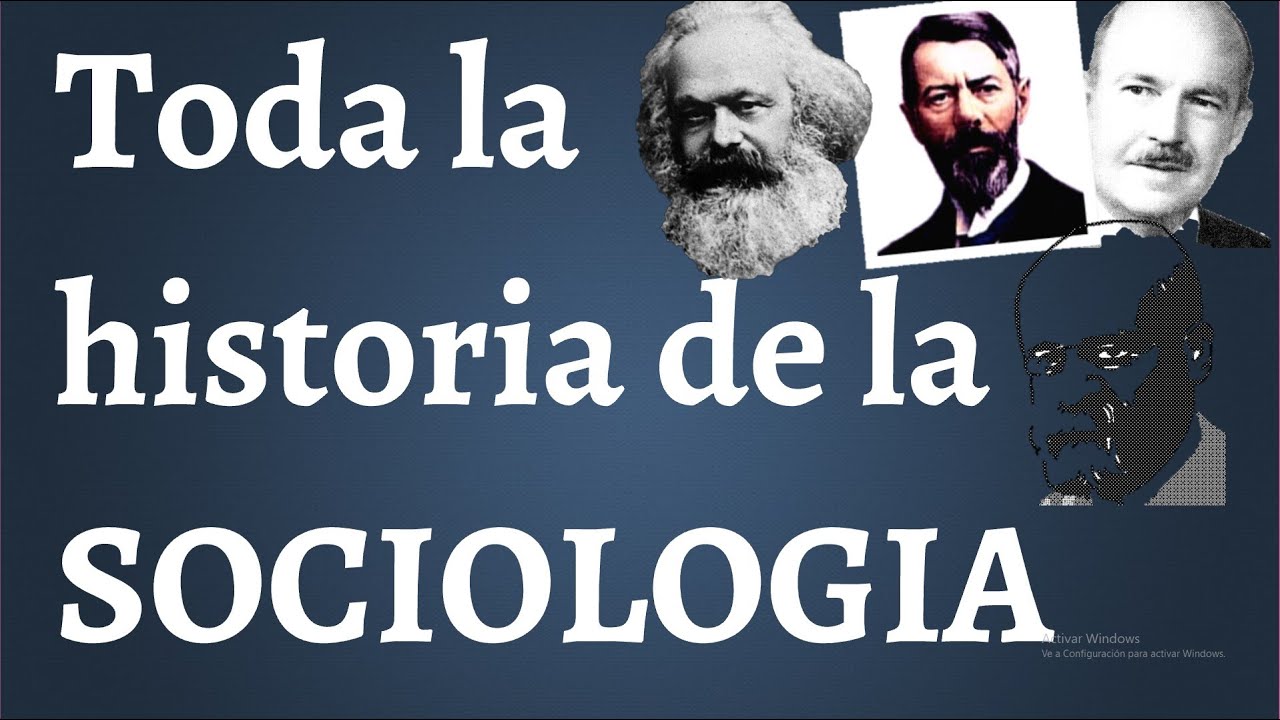Pengantar Teori Sosiologi Modern I
Summary
TLDRThis video provides an introduction to modern sociological theory, highlighting how it differs from classical sociology. It explains that modern sociology is characterized by three key aspects: its chronological development after classical theories, the grouping of sociological ideas based on similarities rather than individual figures, and the shift from broad grand theories to more concrete middle-range theories. The video also introduces major paradigms such as structural functionalism, conflict theory, symbolic interactionism, and ethnomethodology, offering a clear framework for understanding the evolution and study of sociological thought in a modern context.
Takeaways
- 😀 Modern sociology is called 'modern' because it developed after the classical period of sociology.
- 😀 Modern sociology builds on, critiques, and refines ideas from earlier classical sociologists.
- 😀 The study of modern sociology focuses more on ideas and theories rather than individual figures.
- 😀 Theories in modern sociology are often grouped based on similarities in thought, forming paradigms.
- 😀 Structural Functionalism is one major paradigm, with key figures like Parsons and Durkheim.
- 😀 Conflict Theory is another paradigm, including thinkers such as Marx and other similar theorists.
- 😀 Other paradigms include Symbolic Interactionism and Ethnomethodology.
- 😀 Modern sociology emphasizes moving from grand, abstract theories to more concrete middle-range theories.
- 😀 Grouping theories by similarities helps students understand broader patterns rather than studying theorists individually.
- 😀 Modern sociological theory allows for more analytical and accessible discussions compared to the macro-level focus of classical theory.
- 😀 The three main characteristics of modern sociology are chronology, grouping of ideas, and a decline in the level of theoretical abstraction.
Q & A
Why is modern sociology referred to as 'modern'?
-Modern sociology is called 'modern' because it emerged after the classical sociology period and reflects ideas developed by the next generation of sociologists who built upon or critiqued classical theories.
What are the three main characteristics of modern sociology according to the video?
-The three main characteristics are: 1) chronological development after classical sociology, 2) grouping of similar ideas or paradigms rather than focusing on individual figures, and 3) a shift from grand, abstract theories to more concrete or middle-range theories.
How does modern sociology differ from classical sociology in its approach to studying sociological ideas?
-Modern sociology focuses more on grouping theories by similarities in thought (paradigms) rather than studying the ideas of individual sociological figures sequentially.
What does the speaker mean by 'grouping based on similarities of thought'?
-It means organizing sociological theories into categories or paradigms, such as structural functionalism, conflict theory, symbolic interactionism, and ethnomethodology, based on shared principles and perspectives rather than the individual who proposed them.
Can you give examples of sociological paradigms mentioned in the video?
-Yes, examples include structural functionalism, systems theory, symbolic interactionism, and ethnomethodology. Each paradigm groups together similar ideas from multiple sociologists.
Who are some sociologists associated with structural functionalism?
-Key figures in structural functionalism include Talcott Parsons, Émile Durkheim, and Robert K. Merton (referred to as Al-Wutsqo in the transcript).
How does modern sociology handle theories compared to classical sociology?
-Modern sociology often moves from grand, abstract theories (macro-level) to more focused or middle-range theories that are concrete and easier to understand and apply.
What is the significance of 'middle-range theory' in modern sociology?
-Middle-range theory allows sociologists to create theories that are less abstract than grand theories but still generalizable, making them more practical for research and analysis.
Why is chronology important in understanding modern sociology?
-Chronology helps identify how sociological ideas evolved after the classical period and shows the progression and critique of earlier theories by newer sociologists.
How does modern sociology make the study of sociology more accessible?
-By grouping similar ideas, focusing on paradigms, and developing concrete, middle-range theories, modern sociology simplifies the study of complex sociological concepts and allows for a clearer understanding of different theoretical perspectives.
What role do individual sociologists play in modern sociology studies?
-While individual sociologists are still referenced, modern sociology emphasizes their ideas collectively within paradigms rather than studying each figure separately.
Outlines

このセクションは有料ユーザー限定です。 アクセスするには、アップグレードをお願いします。
今すぐアップグレードMindmap

このセクションは有料ユーザー限定です。 アクセスするには、アップグレードをお願いします。
今すぐアップグレードKeywords

このセクションは有料ユーザー限定です。 アクセスするには、アップグレードをお願いします。
今すぐアップグレードHighlights

このセクションは有料ユーザー限定です。 アクセスするには、アップグレードをお願いします。
今すぐアップグレードTranscripts

このセクションは有料ユーザー限定です。 アクセスするには、アップグレードをお願いします。
今すぐアップグレード5.0 / 5 (0 votes)






